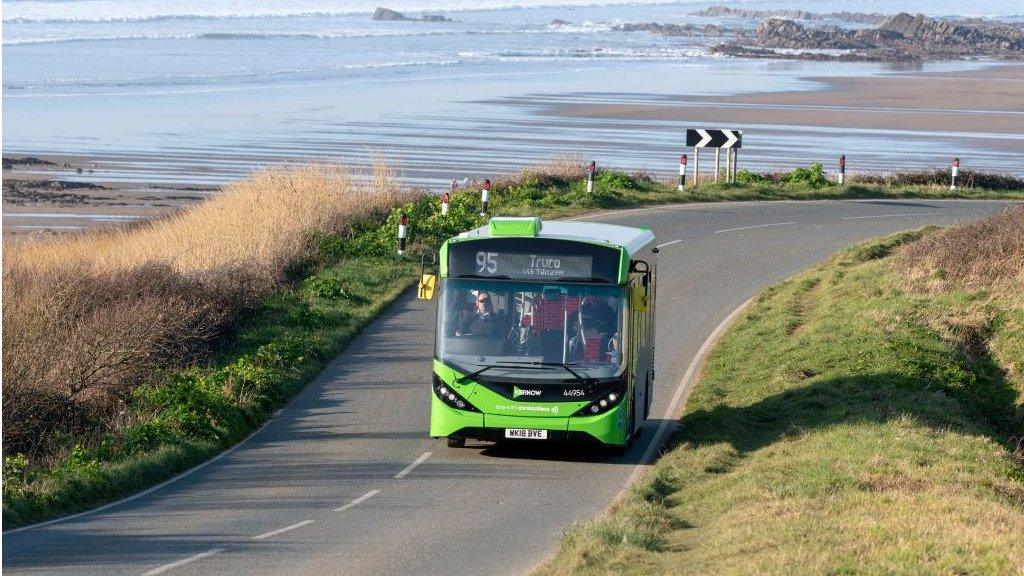General Election 2019: 'Politicians should get the bus'
- Published
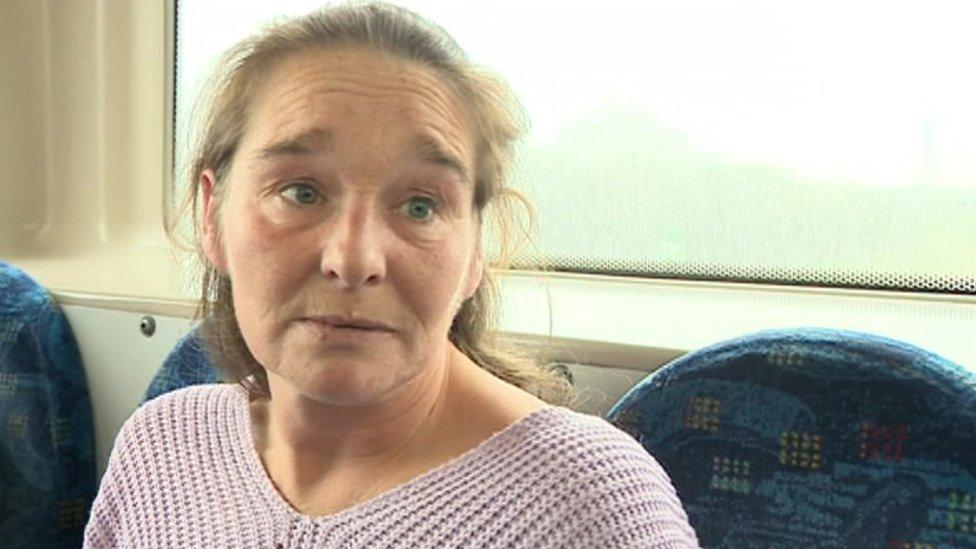
Dawn Winward, a carer from Middlesbrough, said politicians need to use the bus to understand the problems many passengers face
Politicians should be getting the bus to see the kind of issues people are facing, passengers have said.
Ahead of December's General Election, most major parties have pledged to invest more money on bus services.
Figures analysed by BBC News showed more than 130 million fewer bus journeys were taken annually across Great Britain since the previous election in 2017.
On the X10 service between Middlesbrough and Newcastle, passengers talked about problems from cuts to services as well as unreliability.
"Bus services are just a nightmare now," said 44-year-old Dawn Winward, a carer from Middlesbrough.
"They've cut a direct service to the hospital which is forcing people to now walk over two miles to see their relatives.
"It's just a lottery, sometimes the buses just don't turn up, sometimes they're late and sometimes they turn up early."
She said she would like to see politicians travelling by bus.
"They should be doing it more just to see what we're doing. How hard and how annoying it can be when you just want to go from A to B. And the buses are the ones which let you down."
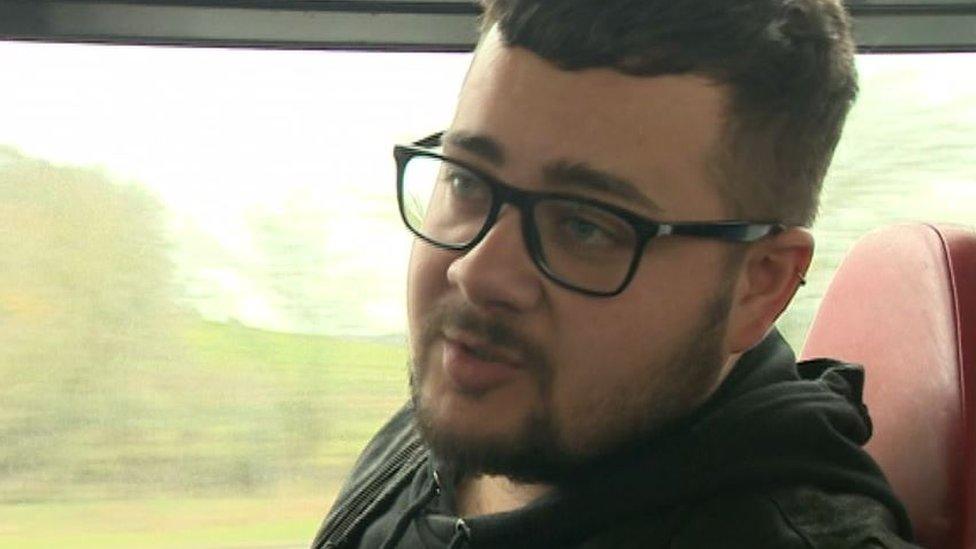
Jordan Tyrell says buses are vital because of the expense of running a car
Jordan Tyrell, 27, who works as a retail assistant in Middlesbrough, agreed.
"They need to have a full week, test them for a full week on a bus then they'll understand how much young people and people around in Middlesbrough are suffering with public transport."
He said rising fares had become a real problem.
"As a kid I used to be able to get a bus into Middlesbrough for pennies, but not anymore. You're now forced to pay sky high prices for a service that doesn't turn up," he said.
"For people my age it's getting more expensive to learn how to drive and then run a car - so buses are vital."
But Lorraine Breckon, 62, said she felt bus companies had been improving local services.
"I think we have a great local bus service," said Mrs Breckon, who is retired.
"You can see how the bus companies are investing in their buses - we've now got wi-fi on this service to Newcastle, which is great."
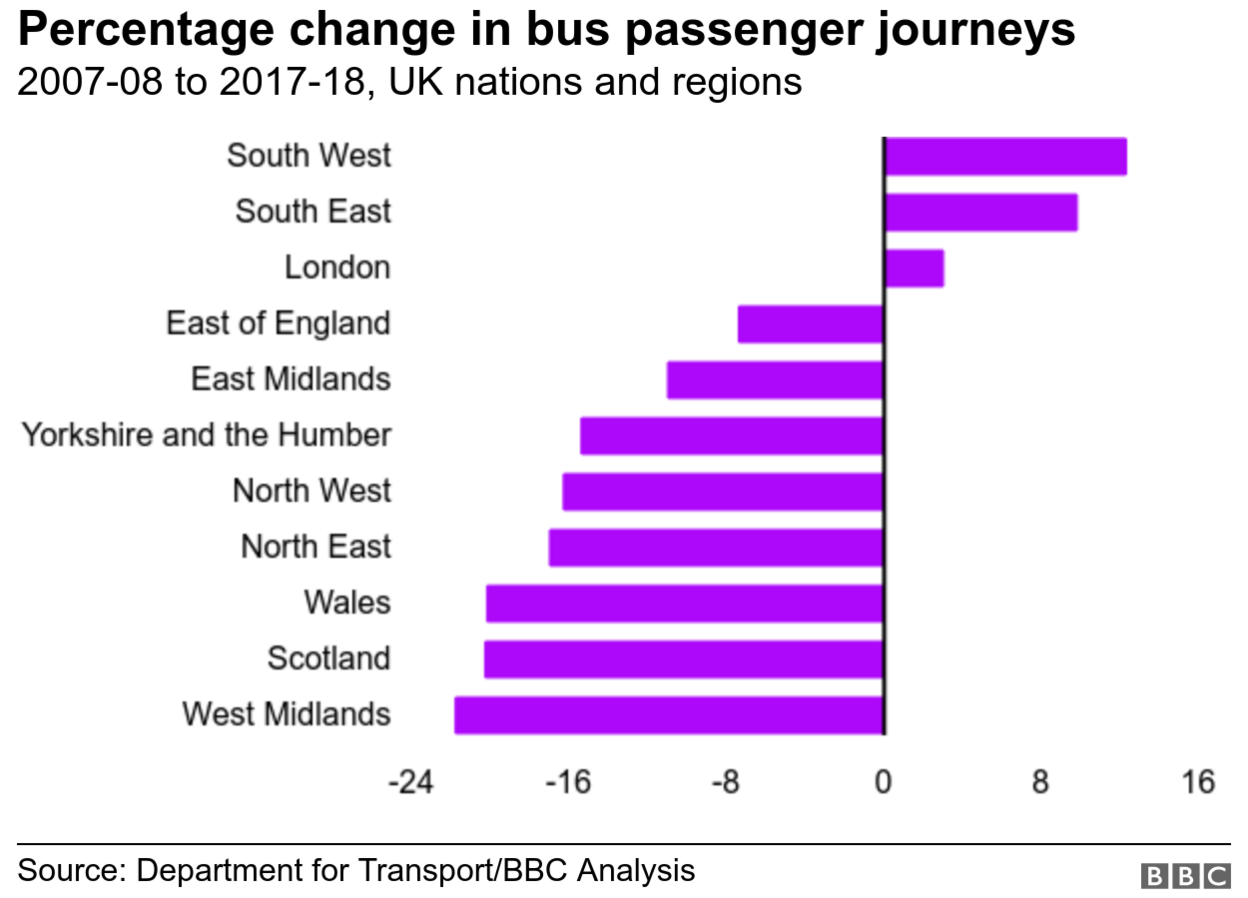
In the 12 months to June 2019, 4.78 billion bus journeys were made, compared to 4.91 billion journeys in 2017.
But last year nearly three times as many bus journeys than rail journeys were made in Great Britain, according to the latest government figures, external.
However, bus travel does not attract the same level of political attention as high profile rail projects such as HS2 or Crossrail.
Since June 2017 bus fares have increased by more than 10% across Great Britain, faster than the rate of inflation, according to government figures.

The decline in the number of bus journeys being made across Great Britain has been a long term trend, with the number of journeys falling from 5.1 billion in 2007-08 to 4.8 billion in 2017-18.
London has been the only part of the country that in recent years has seen a increase in the number of bus journeys.
This has been attributed to the introduction of a flat single bus fare of £1.50 for adults and the regulation of bus services by the public body Transport for London (TFL).
Outside London bus services are unregulated with bus companies allowed to set the vast majority of timetables and fares.
The fall in passenger numbers outside the capital has been blamed on rising fares and bus companies deciding to reduce services in a bid to cut costs.
The fall in passenger numbers is also connected with a reduction in public funding for bus services.
The Local Government Association (LGA) said in England more than 40% of bus services received some form of public subsidy.
But as council budgets have been cut, local authority spending on bus services outside of London has fallen by £122m or a third since 2010 according to the LGA, external.
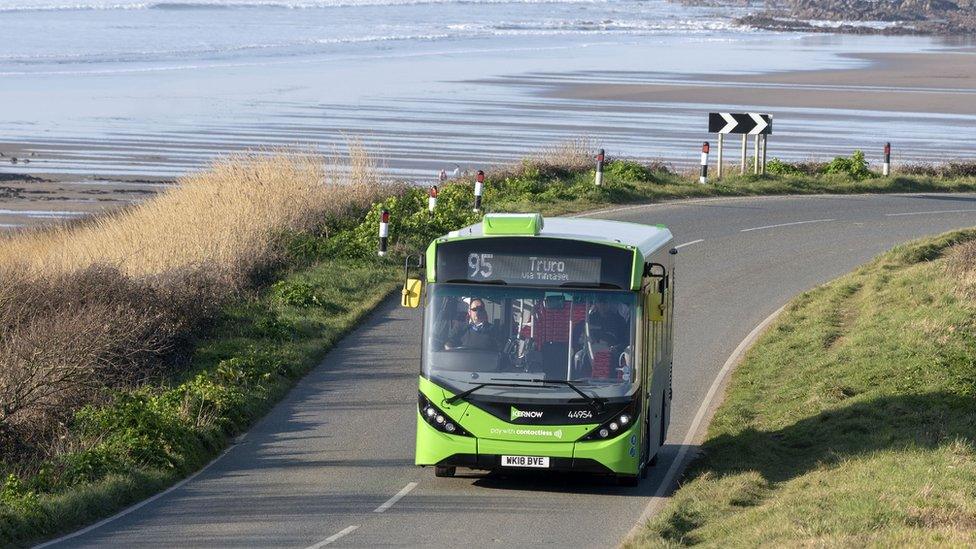
The LGA has warned up to half of bus routes in England are at risk of facing further funding cuts
In the party manifestos published in the run up to the general election, nearly all the major political parties have promised to invest in local bus services and give local councils the ability to regulate local services.
The Conservatives also promised, external "to invest in superbus networks with lower fares", while protecting rural routes and bringing back bus services that have been lost.
Labour said, external it would reopen 3,000 bus routes that have been lost, while also introducing free bus travel for those aged under 25.
The Liberal Democrats, external said a £2bn rural services fund would enable councils to restore old bus routes and open new ones.
The Scottish National Party, external said it would spend £500m on bus lanes and other infrastructure "to make bus travel the faster, greener option".
The Green Party, external said its "Green New Deal" would lower bus fares.
And the Brexit Party, external said it would invest in infrastructure that would ensure there was free wi-fi on all public transport.
- Published25 October 2019
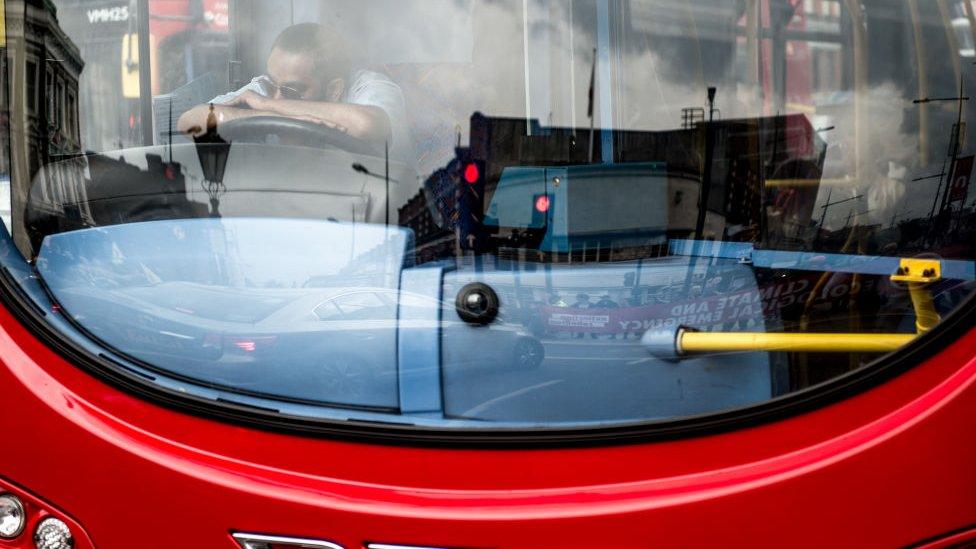
- Published30 January 2019
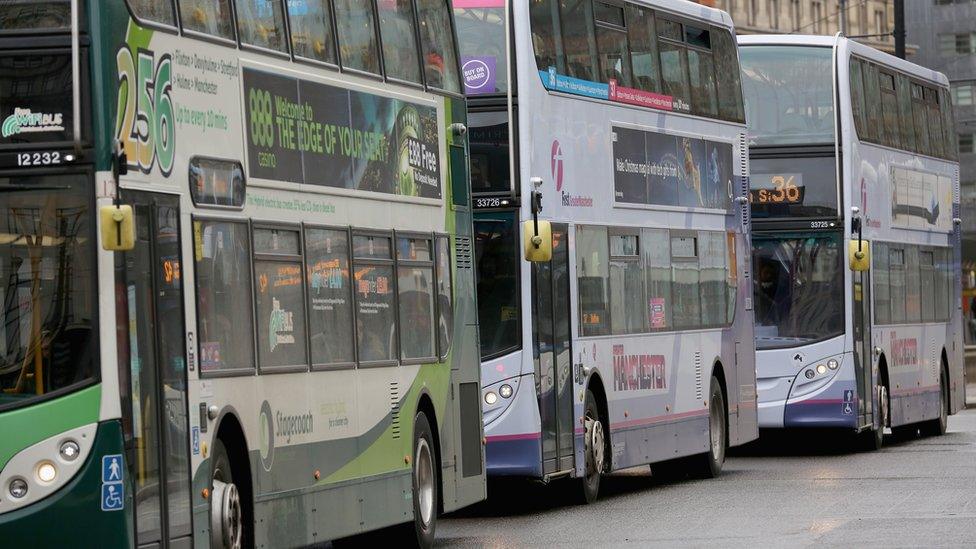
- Published15 March 2021
